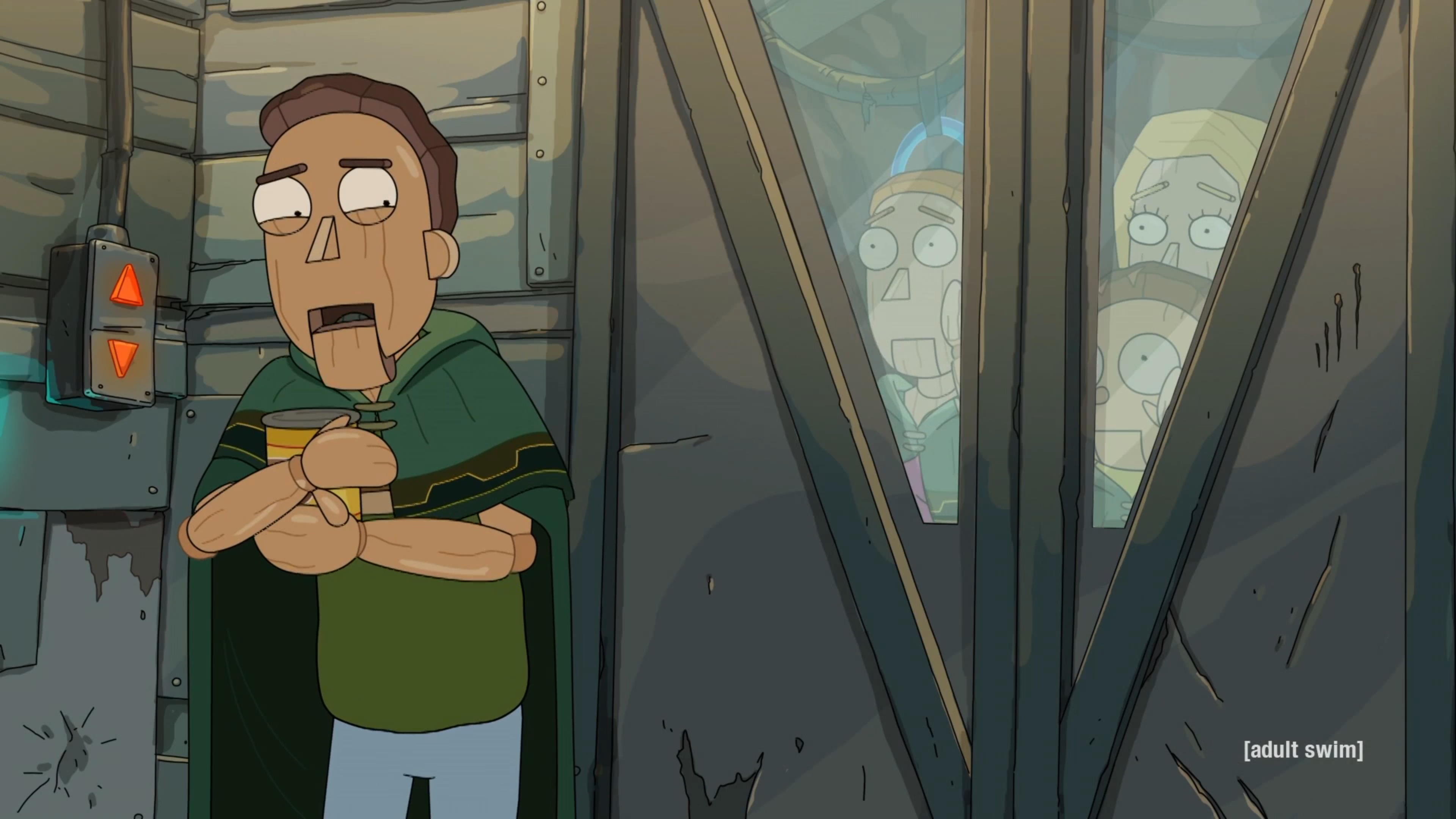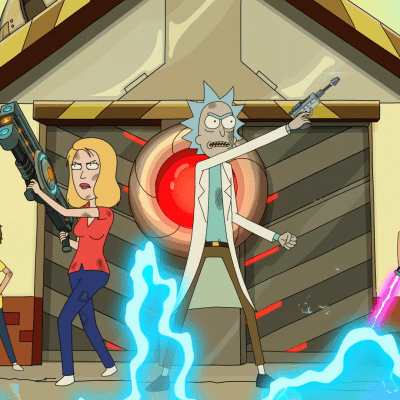This RICK AND MORTY review contains spoilers.
Rick and Morty Season 5 Episode 2
Man, Rick and Morty is a weird fucking show.
I know I’m stating the obvious here but I mean it’s weird on a fundamental storytelling level because, the thing is, under all the sci-fi madness, there’s meant to be a gooey sitcom center to this series and sitcoms usually want you to care a lot about their characters. You’re supposed to get emotional highs and lows from them and want them to succeed. In short, you’re supposed to love them.
“Mortyplicity” is one of those Rick and Morty episodes that very loudly and clearly tells you that you should not be invested in these characters’ lives. You’re supposed to love them, in a way, but that way is as cynical, wisecrack-spouting, sci-fi comedy vehicles. However, you’re not really supposed to invest in them as believable facsimiles of people on their own journeys through life because, well, it’s awfully hard to do that when the show basically tells you it has no consistent protagonists.
Sure, the series has dabbled in this stuff plenty before, with episodes where it’s implied Rick may be taking home the wrong Jerry or Morty and that it’s irrelevant to him. And, of course, there’s the whole cloned Beth debacle (which this episode calls back to a lot). Still, I believe (and please correct me if I’m wrong) that this is the first episode in which there is no grounding the viewer by letting them know they are following the adventures of a specific Rick, or a specific Morty, or a specific any other member of the Sanchez family.
The plot is that Rick has made decoys (i.e., clones) of the family to throw off would-be assassins, but since the decoys/clones are functionally copies, some of the Rick clones/decoys think they’re the real Rick so they, in turn, have made more decoys who have made more clones, and so on, and so forth. It’s purposefully absurd and complicated so we won’t go into why, but the decoys have taken to killing off one other.
Read more
“Mortyplicity” is explicitly unconcerned with giving you characters to invest in and is much more interested in escalating its crazy sci-fi premise, following one family of Sanchezes only to have them murdered by another family, so then the perspective changes to that family and then we follow them for a while. Post-commercial-break, we get a montage of clones killing clones and other clones suiciding themselves, so that, by the time the montage ends, it’s become entirely irrelevant which family we’re following and whether they’re clones or not. The ending briefly introduces what seems to be the “real” family before revealing the whole decoy disaster is yet ongoing, suggesting nothing is certain and that Rick and Morty and family are stuck in a cycle of murdering themselves in perpetuity. (So, that’s how they’re going to fulfill the remainder of that 70-episode order contract.)
The episode does, cleverly, manage to squeeze in just a smidge of that heartfelt sitcom stuff by way of a brief heart-to-heart between a Rick and a Beth (wearing Muppet costumes). It’s a nice moment in which Beth successfully argues that Rick cares about his family or he wouldn’t have been so paranoid as to clone them a bazillion times and Rick apologizes and tells Beth he loves her. The scene somewhat convincingly proves Rick and Morty can still make us care about its characters despite doing away with conventional protagonists and instead plotting an emotional through line across a collective of Sanchez decoys (for characterization similar to this, see Meg Ryan’s performances in 1990’s Joe Versus the Volcano).
However, it’s still only somewhat convincing because this is one tiny emotional moment in what is mostly an episode of the Sanchez family cynically dispatching clones while, as is the standard for modern Rick and Morty, snapping angrily at each other almost constantly. I laughed a few times; my favorite lines were “Actually, I get hard protecting my family” and “We’re gonna live in the woods like libertarians.” The wooden puppet Sanchez clones with the compressed audio voices were kind of charming, too. And the Buffalo Bill-esque serial killer Rick was inspired in how disturbing it was. But, in the end, “Mortyplicity” is one of those episodes, like “A Rickle in Time” or “One Crew over the Crewcoo’s Morty” before it, that’s primarily invested in the escalating complexity of its bonkers sci-fi premise. You’ll either love every moment of the freewheeling violence and madcap sci-fi rigamarole or you’re one of the fans like me who more appreciates the sitcommy characterization side of the series and will therefore find a lot less to latch onto.
That said, I can’t deny the creativity and ambition of plots like these, so I’m forced to grade it higher than last week’s premiere.


